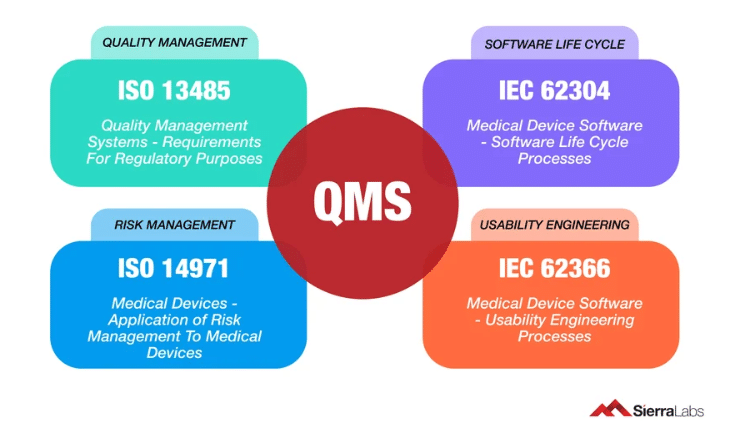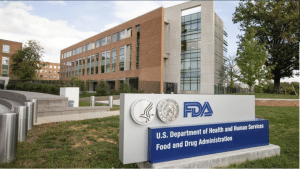Leveraging Process Analytical Technology for CMC
Introduction
In the evolving field of pharmaceutical development, the implementation of Process Analytical Technology (PAT) for manufacturing is an essential competitive advantage. PAT offers widely accepted methods to safeguard quality assurance and the general safety of pharmaceutical products. The goal of this article is to provide a summary of PAT, best practices of principles and adoption of PAT, and how to leverage increased process knowledge in your regulatory submission.
Understanding Process Analytical Technology (PAT)
Efficient pharmaceutical manufacturing is a significant facet of the global healthcare system. The well-being of patients is contingent on the accessibility of safe and effective treatments. The U.S. Food and Drug Administration (FDA) framework for process analytical technology was originally established based on insights to facilitate quality improvement. It includes risk-based regulatory outcomes that have been validated by both life science manufacturers and FDA regulators.
The Agency framework is based on two primary drivers:
- Scientific principles and tools that support the development of innovation
- Regulatory strategies that accommodate innovation during the submission process
Principles of Process Analytical Technology
CMC (Chemistry, Manufacturing, and Controls) is one of the most influential facets of drug product development. Traditional drug development in pharmaceutical manufacturing is completed using batch processing and production sample lab testing to evaluate quality. This approach has been effective in delivering quality pharmaceuticals to patients in need.
However, modern technologies now offer life science employees the opportunity for improving pharmaceutical development. Specifically, PAT principles and technologies focus on increasing quality assurance during the product development process. This often involves the use of unique quality controls from different types of technologies.
Process Analytical Technology and CMC
The implementation of process analytical technology encourages drug manufacturers to create a team-based regulatory approach to chemistry, manufacturing and controls. Further, the review of current good manufacturing practices (cGMP) is also essential to the success of process analytical technology.
Finally, in-depth CMC training is important to achieve certification in process analytical technology. This is important considering the regulatory inspection review by Agency auditors for each new drug in development. The ability to demonstrate regulatory compliance is a foundational training strategy that supports the use of process analytical technology in manufacturing.
Implementing Process Analytical Technology
In the past, many manufacturing procedures have been considered static due to regulatory constraints. Proposed process changes are often considered for feedback by FDA early in the regulatory submission process. However, this can also lead to ambiguity of what types of technology will be authorized or declined by the Agency going forward. Life science manufacturers often stick with what is approved to stay in compliance and not raise red flags with FDA.
Recognizing the need to reduce this ambiguity for embracing innovation, FDA launched an initiative called Pharmaceutical CGMPs for the 21st Century: A Risk-Based Approach. The goal of this program is to ensure process analytical technology principles are known by life science companies and include:
- Modern concepts of risk management
- Quality system approaches are incorporated into pharmaceutical manufacturing while maintaining product quality
- Life science manufacturers are encouraged to use modern innovations in pharmaceutical manufacturing technology
- FDA’s submission review and inspection programs operate in a coordinated manner
- Regulations and manufacturing standards are applied consistently by FDA and the manufacturer
Benefits of Implementing Process Analytical Technology
FDA considers process analytical technology to be:
“a system for designing, analyzing, and controlling manufacturing through timely measurements of critical quality and performance attributes of raw and in-process materials and processes, with the goal of ensuring final product quality.”
The primary benefit of implementing process analytical technology is to enhance understanding and control of the manufacturing process. Consequently, the tools and principles of process analytical technology should increase the level of manufacturing process understanding in general.
Manufacturing Process
Further, meeting the regulatory requirement of validating the manufacturing process can only benefit from this understanding of what quality looks like. Five core ingredients of process analytical technology strategy that should help users boost their understanding include:
- Enhanced process understanding and knowledge
- Improved process control and efficiency
- Reduction in production costs and waste
- Faster and more efficient product development
- Enhanced regulatory compliance
Adoption of Process Analytical Technology
Equally important, for the manufacturing team’s adoption of new technologies to be successful, employees must recognize the importance of quality assurance and patient safety. Moreover, proposing innovative approaches to pharmaceutical development should not lead to a regulatory stalemate between FDA and the life science manufacturer.
FDA encourages manufacturers to use the process analytical technology framework in clinical documentation, so a stalemate doesn’t occur during the regulatory process. This can include clinical evidence that helps demonstrate:
- Process understanding and control strategy
- Real-time process monitoring
- Multivariate data analysis (MVDA)
- Process control and optimization
- Continuous manufacturing and quality by design (QbD)
Process Analytical Technology Manufacturing Examples
FDA has provided process analytical technology examples of the tools available that facilitate manufacturing process understanding. These converge at the intersection of scientific, risk-managed pharmaceutical development, manufacturing, and quality assurance.
When used within an effective manufacturing system, process analytical technology can provide effective and efficient means for facilitating process understanding. Further, continuous improvement, and development of risk-mitigation strategies. In the PAT framework, PAT manufacturing examples can be categorized according to the following:
- Multivariate tools for design, data acquisition, and analysis
- Process analyzers
- Process control tools
- Continuous improvement and knowledge management tools
Process Analytical Technology and Quality Assurance
Process analytical technology and quality assurance go hand in hand when it comes to manufacturing innovation. The above performance metrics for measuring quality focus on designing, analyzing, and controlling manufacturing through timely measurements of raw and in-process materials and processes.
For the same reason, process analytical technology commonly includes tools that can improve chemical, physical, microbiological, mathematical, and risk analysis. Simultaneously, these quality assurance tools that aid process understanding can also support meeting existing regulatory submission requirements to validate the manufacturing process.
Process Analytical Technology and Regulatory Approval
Achieving regulatory submission approval for a new product is rarely an easy process. The clinical evidence needed to support efficacy must include documentation of quality assurance delivered by the manufacturer.
Innovation in development, manufacturing and quality assurance that leverages process analytical technology should help answer these common regulatory questions from FDA experts:
- What are the mechanisms of degradation, drug release, and absorption?
- What are the effects of product components on quality?
- What sources of variability are critical?
- How does the process manage variability?
Regulatory Submission
Regulatory considerations that can help document quality assurance improvements from process analytical technology often are found in:
- Reducing production cycle times by using on-, in-, and/or at-line measurements and controls
- Preventing rejects, scrap, and re-processing
- Real time release
- Increasing automation to improve operator safety and reduce human errors
- Improving energy and material use and increasing capacity
- Facilitating continuous processing to improve efficiency and manage variability
Regulatory Documentation
Quality assurance improvements are centered around the manufacturing process and system processes involved. FDA considers a process to be well understood if regulatory documentation shows:
- Why sources of variability can be identified and explained
- When production variability can be managed by owners of the process
- How quality attributes can be accurately and reliably predicted
This type of regulatory documentation provides insights for FDA regulators into materials used, an understanding of process parameters, changes in manufacturing, and environmental conditions.
The ability to predict these three items can show a high degree of process understanding. The goal is for your regulatory application to demonstrate your team and company understand how to reproduce process capability data and maintain a consistent state of control.
Conclusion
Process analytical technology is used to improve the scientific basis for regulatory specifications and promoting continuous improvement. The ability to enhance manufacturing while retaining or improving product quality is essential to helping patients and population health in general. Life science manufacturers should document technology improvements to FDA and demonstrate the ability to quickly resolve production-related technical issues.
About the Author
 As Vice President of Regulatory Services for Regulatory Compliance Associates® (RCA), Erika Porcelli touches all aspects of the customer experience. RCA provides consulting services to life science organizations for the resolution of compliance and regulatory challenges. RCA is a global business unit of Sotera Health, a trusted partner to more than 5,800 customers in over 50 countries, including 40 of the top 50 medical device companies and 8 of the top 10 pharmaceutical companies.
As Vice President of Regulatory Services for Regulatory Compliance Associates® (RCA), Erika Porcelli touches all aspects of the customer experience. RCA provides consulting services to life science organizations for the resolution of compliance and regulatory challenges. RCA is a global business unit of Sotera Health, a trusted partner to more than 5,800 customers in over 50 countries, including 40 of the top 50 medical device companies and 8 of the top 10 pharmaceutical companies.
About RCA’s Pharmaceutical Consulting Services
Regulatory Compliance Associates (RCA) has helped thousands of pharmaceutical companies meet regulatory, compliance, quality assurance, and remediation challenges. With more than 20 years of experience with FDA, Health Canada, EU and global regulatory agencies worldwide, Regulatory Compliance Associates® offers leading pharmaceutical consultants. We’re one of the few pharma consulting companies that can help you navigate the challenges associated with industry regulations.
Our pharmaceutical consulting firm includes over 500 seasoned FDA, Health Canada & EU compliance consultants and regulatory affairs experts who understand industry complexities. It’s a pharma consultancy founded by regulatory compliance executives from the pharmaceutical industry. Every pharmaceutical industry consultant on the Regulatory Compliance Associates team knows the unique inner workings of the regulatory process.
Client Solutions
Whether you’re in the product planning, development or pharmaceutical lifecycle management stage or need a remediation strategy for a compliance crisis, Regulatory Compliance Associates will guide you through every pharmaceutical consulting step of the regulatory process and create a customized approach depending on your product and your pharma company’s individual needs. Our regulatory compliance clients include:
- Companies new to FDA, Health Canada or EU regulations and regulatory compliance
- Start-up organizations with novel submissions to 510(k) submissions from multi-national corporations
- Investment firms seeking private equity due diligence for pre-acquisition and post-deal research
- Law firms seeking pharmaceutical consulting firm expertise in the remediation of warning letters, consent decrees, 483’s or import bans
Regulatory Affairs
Regulatory affairs is Regulatory Compliance Associates backbone. We exceed other pharma consulting companies with industry experts experienced in complexities of the pharmaceutical and biopharmaceutical industries. Our pharma consulting expertise spans all facets and levels of Regulatory Affairs, from Regulatory Support for New Products to Life Cycle Management, to other services like Outsourced Regulatory Affairs, Submissions, Training, and more.
As your partner, we can negotiate the potential assessment minefield of regulatory compliance services with insight, hindsight, and the clear advantage of our breadth and depth of knowledge and regulatory compliance consulting. We offer the following pharma consulting regulatory affairs services for pharmaceutical companies.
- New Product Support
- Product Lifecycle
- Other Regulatory Services
- Combination Products
Compliance Assurance
The regulations process surrounding pharmaceutical companies can be tricky for even the most experienced industry veteran to understand. Just one misstep could mean significant and lasting consequences for your business. At Regulatory Compliance Associates, we offer the pharma consulting experience and pharma consultants necessary to guide you through the quality compliance process.
- Assessments
- Audits
- Regulatory Agency Response
- Preparation and Training
- Inspection Readiness
- Data Integrity
Quality Assurance
Regulatory Compliance Associates Quality consulting includes assessments, strategy, implementations, staff augmentations, and identification of quality metrics to ensure continuous improvement. Our pharma consultants understand the strategic thinking needed to align your business needs and goals. Regulatory Compliance Associates quality assurance services include quality experts with experience spanning major corporations and start-ups. Our pharmaceutical consulting firm knows firsthand how to achieve, maintain, and improve quality, and we excel in transferring pharma consulting knowledge to your organization.
- 21 CFR Part 11
- Data Integrity
- Manufacturing Support
- Facility Support
- Quality Metrics
Remediation Services
Regulatory Compliance Associates has a proven remediation services approach to managing FDA Warning Letters, Consent Decrees, Remediation and other serious regulatory situations. Our pharma consultants know how to partner with executive, legal, and communication teams. Each RCA pharma consulting Expert will develop a response that will be accepted by the regulatory agency and be realistic to execute.
Regulatory Compliance Associates pharma regulatory consultants will develop a comprehensive proof book of documented evidence demonstrating the corrective action taken to remediate non-compliant issues. In addition, each Regulatory Compliance Associates pharma consulting Expert understands compliance enforcement. We’ll prepare a comprehensive pharma consulting strategy to assist in your remediation efforts, drive continuous improvement, and maintain regulatory compliance with the regulations.
- Regulatory Action
- Regulatory Compliance
- Regulatory Enforcement
- Warning Letter
- 483 Observation
- Oversight Services
- Risk Management Plan
About Regulatory Compliance Associates
 Regulatory Compliance Associates® (RCA) provides pharmaceutical consulting to the following industries for resolution of life science challenges:
Regulatory Compliance Associates® (RCA) provides pharmaceutical consulting to the following industries for resolution of life science challenges:
- Life Sciences
- Pharmaceutical
- Biologic & Biotechnology
- Sterile compounding
- Medical device
- Lab Testing
We understand the complexities of running a life science business and possess areas of expertise that include every facet of R&D, operations, regulatory affairs, quality, and manufacturing. We are used to working on the front lines and thriving in the scrutiny of FDA, Health Canada, MHRA and globally-regulated companies.
As your partners, we can negotiate the potential minefield of regulatory compliance and regulatory due diligence with insight, hindsight, and the clear advantage of our unique expertise and experience.
- Founded in 2000
- Headquartered in Wisconsin (USA)
- Expertise backed by over 500 industry subject matter experts
- Acquired by Sotera Health in 2021
About Sotera Health
The name Sotera Health was inspired by Soteria, the Greek goddess of safety, and reflects the Company’s unwavering commitment to its mission, Safeguarding Global Health®.
Sotera Health Company, along with its three best-in-class businesses – Sterigenics®, Nordion® and Nelson Labs®, is a leading global provider of mission-critical end-to-end sterilization solutions and lab testing and advisory services for the healthcare industry. With a combined tenure across our businesses of nearly 200 years and our industry-recognized scientific and technological expertise, we help to ensure the safety of over 190 million patients and healthcare practitioners around the world every year.
We are a trusted partner to 5,800+ customers in over 50 countries, including 40 of the top 50 medical device companies and 9 of the top 10 pharmaceutical companies.
Commitment to Quality
Our Certificate of Registration demonstrates that our Quality Management System meets the requirements of ISO 9001:2015, an internationally recognized standard of quality.
To begin the Regulatory Compliance Associates scoping process today, please enter your information in the blue form below and click the submit button at the bottom of the webpage.




 Regulatory Compliance Associates® (
Regulatory Compliance Associates® (